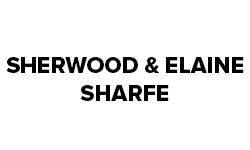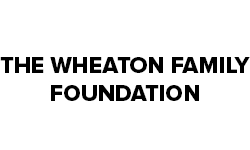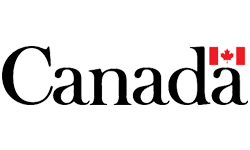CITIZENSHIP STUDIES GRADE 8: CITIZENS CONNECTED TO SELF, COMMUNITY AND PLACE
Part A
Broad Area of Citizenship
This area of citizenship focuses on the student using critical thinking skills in order to better understand, the relationship between geography, resources, culture and historical events.
Overview and Desired Results of Citizenship Study
These inquires provide opportunities for students to expand their own sense of identity with respect to their footprint on the world. Students explore the impact of Canada’s market economy and consider the implications of their personal consumer choices. As they learn about the impact they are making in the world through their lifestyle choices, students develop an awareness and understanding of how they are contributing to environmental issues at a local, regional, national and global levels. Finally, students critique Canada’s approaches to environmental stewardship and sustainability.
Enduring Understandings of Citizenship Study
Students will understand that:
- History and current events are understood through diverse historical perspectives.
- Democracy requires discussion and consideration of alternate points of view in order to find a balance between individual perspectives.
- Citizens value the needs of the collective common good and consider how their actions impact the collective well-being.
- Canadian multi-cultural policies challenge citizenship tenets and require consideration of multiple perspectives.
- Canada’s history includes First Nations, Métis, and Inuit governance and perspectives and each have contributed to Canadian identity.
- Decision-making is a complex process with far-reaching impacts.
- Engaged citizens strive to be knowledgeable, uphold their rights, and act on their responsibilities.
Students examine their actions to consider the long-term effects on the physical and social environment of which they are a part. They will explore the value of and think about what is required to achieve a collective common good.
- Enduring understandings are the big ideas that stimulate thinking, guide the inquiry and are linked to outcomes.
- Essential questions point to the “big ideas” in the inquiry and should be considered and reconsidered as the inquiry progresses.
- Answers to these questions form the evidence of learning at the end of study.
Knowledge and Skill Development
- Expand their sense of identity with respect to local, regional, national, and global diversities.
- Exhibit an awareness and understanding of natural environmental issues on a local, regional, national, and global level.
- Model being active and responsible citizens.
Students will continue to develop skills for:
- Examining issues from a variety of perspectives.
- Looking for alternate points of view.
Students will use their independent learning to:
- Refine their skills for treating self and others with respect.
- Demonstrate empathy in social situations.
- Continually reassess where they belong (changing contexts/roles and expectations) i.e. school, family, community.
- Reflect upon the impact of their choices.
Essential Questions
- What is government’s responsibility to sustain and address common good?
- What is the appropriate citizenship response to the marginalization witnessed daily?
- What is the relationship between the natural environment and the development of society?
- How much control do you have over the impact of your decisions/actions?
- What responsibility do you have to balance personal needs with the community’s (global) needs?
- What is the power and responsibility of the individual to make a difference in the world?
- What role does empathy play in citizenship?
Curriculum Outcomes and Indicators
Sask. Curriculum Outcomes / Student Friendly Outcomes
RW8.1
Analyze the social and environmental consequences of living in the Canadian mixed market economy based on consumerism.
Indicators:
- Investigate the goods and services produced in the local economy and the consumers of those goods and services (e.g., hospitals, hairdressers, manufacturers, farmers, exporters).
- Categorize the producers of goods and services in the local economy as belonging to the public or private sector, and define the differences of the two groupings.
- Identify the purpose and characteristics of: Private enterprise and public enterprise.
- Represent the characteristics of a mixed market economy including the roles of the producer, consumer and government.
- Illustrate the elements of a mixed market economy present in the lives of students.
- Appraise the role of advertising in the mixed market economy.
- Determine the positive and negative social and environmental consequences for family, school and community in the Canadian mixed market economy.
- Recognize the impact of living in situations in which assets are collectively or communally owned (e.g., First Nations, Hutterite Colonies).
RW8.2
Assess the implications of the personal consumer choices. / Examine and review personal consumer choices.
Indicators:
- Determine the effects on the local community of the purchasing patterns of its members (e.g., the origins of products used in daily life).
- Create a catalogue of locally-produced products and of fair-trade products available in local businesses.
- Assess the advantages and disadvantages of buying locally, buying fair-trade products and buying mass-produced products. Include the state of factories in places like Bangladesh, and discuss a Canadian’s responsibility to ensure a safe working place for all.
- Illustrate the effects of excessive consumption in personal, community and national contexts.
- Propose a definition of responsible consumerism, and publish a list of strategic actions leading to responsible consumerism.
- Represent a personal change related to responsible consumption integrated into personal life.
RW8.3
Critique the approaches of Canada and Canadians to environmental stewardship and sustainability. / Research and critically review the stand of Canadian governments toward environmental sustainability over the years.
Indicators:
- Represent on a timeline the evolution of Canadian policy on global environmental issues, including historical First Nations approaches to environmental stewardship.
- Outline the issues involved in finding solutions to an environmental challenge (e.g., sharing water resources with the US, logging in Canadian forests, expansion of nuclear energy, development of tar sands).
- Tell the story of changes made in his or her behavior to protect the environment (e.g., walking, purchasing locally-produced or seasonal products, recycling; composting; disposing responsibility of garbage; using less paper; using less plastic; factoring packaging into purchases).
© 2024 Concentus Citizenship Education Foundation Inc. All Rights Reserved.









